Harmeling is positive about TDT-Unibet, but also critical: "What happened at the national championships should never happen!"
CyclingSaturday, 06 January 2024 at 16:23

Behind the scenes, Rob Harmeling is one of the important people at the TDT-Unibet Cycling Team. The team director is working on an open culture, where riders and staff are able to be vulnerable in both victory and defeat. He tells IDLProCycling.com why he is so insistent on this and looks back on his role in the recovery of Pim Ronhaar.
After the Tour of Britain, Harmeling was adamant with the boys from TDT-Unibet. Only Abram Stockman and Hartthijs de Vries managed to finish the multi-day race for the team. "If you want to be a professional cyclist, I think you should be able to complete a stage race like this," the team director said after that race.
Harmeling sees great strides from TDT-Unibet riders after Tour of Britain
Months later, Harmeling is observing noticeable improvement in several riders he had previously addressed with tough love at the end of the season. "The way some guys are going into the winter season, you really see progress. The foundation of the season is laid during this period, and the guys are aware of that. I have full confidence that these boys can make that step, but they have to work very hard for it. I am here to facilitate that," Harmeling tells IDLProCycling.com.
Text continues below photo.
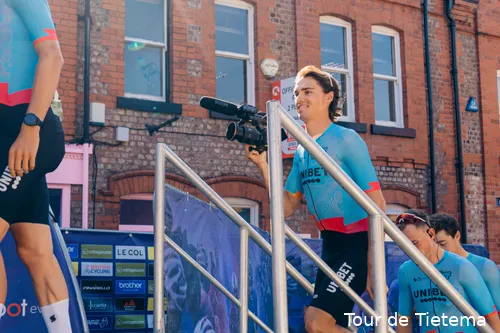
TDT-Unibet sprinter Davide Bomboi in the Tour of Britain
For the team director, it's crucial that not only he, but also the riders in the team can be vulnerable. "I can be very much myself within the team. Part of that includes a mentor role, but I don’t do it alone. We do everything together as staff. In some way, Bas (Tietema, ed.) is very good at bringing in people who strengthen each other. This is also true for the cyclists themselves: we think it's important that everyone can be themselves and dare to be vulnerable."
The national championship was the low point: "Everything that could go wrong, did go wrong"
A clear example of this was the National Cycling Championships in June. Martijn Budding, one of the TDT-Unibet riders, was at the start, but he wouldn’t reach the finish in Sittard-Geleen due to mechanical problems. In the Tour de Tietema documentary, it’s shown how he expresses his dissatisfaction to Harmeling. "And he was right. First, his chain broke and then his spare bike nearly fell apart. That should never happen!"
Harmeling explains how this situation came about. "It had been looming for a while because we were understaffed, and the organization began to fall apart, but that's no excuse. I can't tell a rider that he hasn't trained for a week, so that national championship was a lesson for us. Everything that could go wrong, did go wrong, and it was a poor performance by us as staff. The good thing is that it was immediately discussed, and that the riders were not afraid to express their dissatisfaction. I grew up differently, and I'm glad we can break that cycle."
Text continues below photo
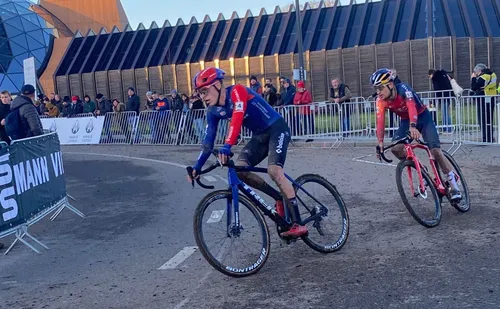
Pim Ronhaar sought help from Rob Harmeling during a difficult period.
Harmeling on Ronhaar's Recovery: "Cycling is a very tough and uncertain sport"
This isn't the first time Harmeling has had such an impact on a team or rider. Before Pim Ronhaar made his breakthrough with Baloise Trek Lions, he struggled with physical and mental issues. The young cyclo-cross rider even experienced an epileptic seizure on his bike as a junior, despite not having epilepsy. "I ended up with Rob Harmeling, and he soon had me in tears. That's when I knew: this man is going to help me a lot," Ronhaar said in 2019 on RTV Oost.
Harmeling enjoys talking about Ronhaar. "Cycling is just a very tough and uncertain sport. You almost always lose, and you have to be able to deal with that as a person, but it's difficult. Humans aren't very good at dealing with it because you have to keep making yourself vulnerable. I helped Pim by finding the right people to surround him. People who don't care whether he wins or loses but who always support him. But don't overestimate my role. I only played a very small part in his recovery."
IDL-productions
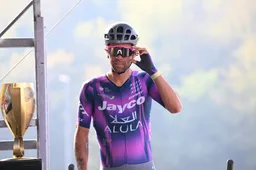
Sanremo, a world title and the yellow jersey: Michael Matthews escaped death - and that reignited his spark
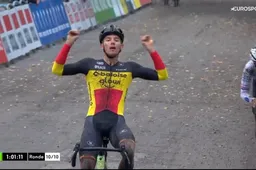
Unlike road colleagues Van der Poel or Van Aert, Nys rides twice as many cyclo-crosses: 'He doesn't want to ride only ten cyclo-crosses'
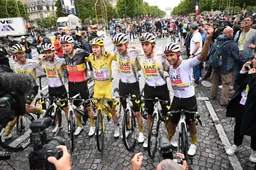
95 (or was it 97?) wins and a new record year, but losing that one race still hurts UAE Team Emirates - XRG

Former cyclocross world champion recalls wonderful memories of young Nys: "Back then we thought: that's not going to work out"

There was smoke so there was fire, but in 2026, how will Lidl-Trek make sure that fire doesn't flare up again?
Latest Cycling News
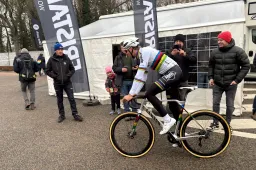
Mathieu van der Poel explains Namen-Antwerp difference through deal with trainer
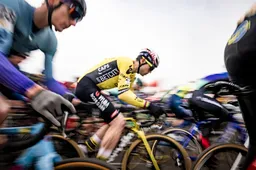
Wout van Aert is mostly 'free in his head' after return: 'I don't have those worries now'

🎥 At Unibet and in Tietema's house, they see with pain in their hearts how Tadej Pogacar again leaves no crumbs
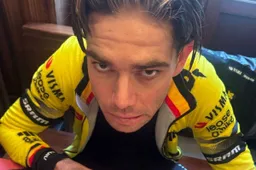
Strava shows: Wout van Aert seems to be doing things a little differently toward cross and the road
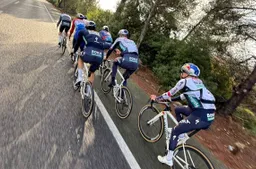
Pogačar (UAE) vs Evenepoel (Red Bull): records fall as rivals unleash monster distances
Popular Cycling News
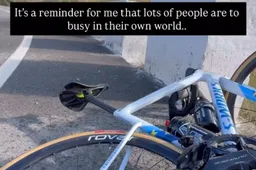
🎥 Demi Vollering crashes hard in training and lashes out at motorists: 'Gives me a lot of confidence in humanity...'

Everyone is waiting for the day Pogacar retires: 'I don't know if that's a good thing for Ben Healy,' says EF-boss Vaughters
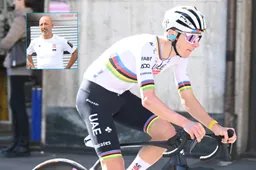
Why is Tadej Pogacar's program (still) so limited for 2026 and when will he go searching for altitude?

Van Aert has an explanation for his ups and downs in 2025: 'Noticed I was cooked after three hours of training'
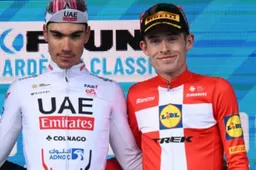
Skjelmose regrets statements about 'fellow nerd' Ayuso: 'I told him I was sorry'
Latest Comments
- Those events are mental rest for him. Fun, without expectations. *Sagan lost his abilities because he gained weight and got lazy. Pogi will likely retire before that has a chance at happening.Veganpotter14-12-2025
- Ah, the consequences of riding for Israel.Veganpotter11-12-2025
- Pidcock could follow everyone but Pogi while finishing 3rd. No second place rider this season😃Veganpotter16-11-2025
- Now the Palestinian protestors can stop their whining. Trump came to the rescue. So they can now STFU and go back to waving the rainbow flags.raufus15-10-2025
- Cracked the code lol. If it was that easy to 'crack the code' jonny Vegas would be charging up the Kwaremont giving Pog a dose of his medicine. Evenepoel can't match pog on a climb and neither can mvdp. Anything with a half difficult climb and Pog smashes the field. Even on flat(ish)parcours like Roubaix it came down to a mistake and crash by pog to definitively crown mvdp. MSR is the only one that Pog probably won't win.kevpt10-10-2025
- We've seen this movie before. I think Pogacar is doping.DeadBlow10-10-2025
- 👍Bea08-10-2025
- 👌🏻Bea08-10-2025
- What the data doesn't show is how much of an effect drafting had for evenepoel. Pogacar went with del toro at 100km whilst Evenepoel was still in the bunch. Despite the bike changes he still had a lot of assistance getting back to the bunch. Pogacar then rode 60km solo whilst evenepoel rode with Healy/Skjelmose until going solo in thd last 10-15km. Thats ~20% less power / energy requirements for 45-50km. Apples and oranges...kevpt30-09-2025
- 👏👏Bea24-09-2025
Loading